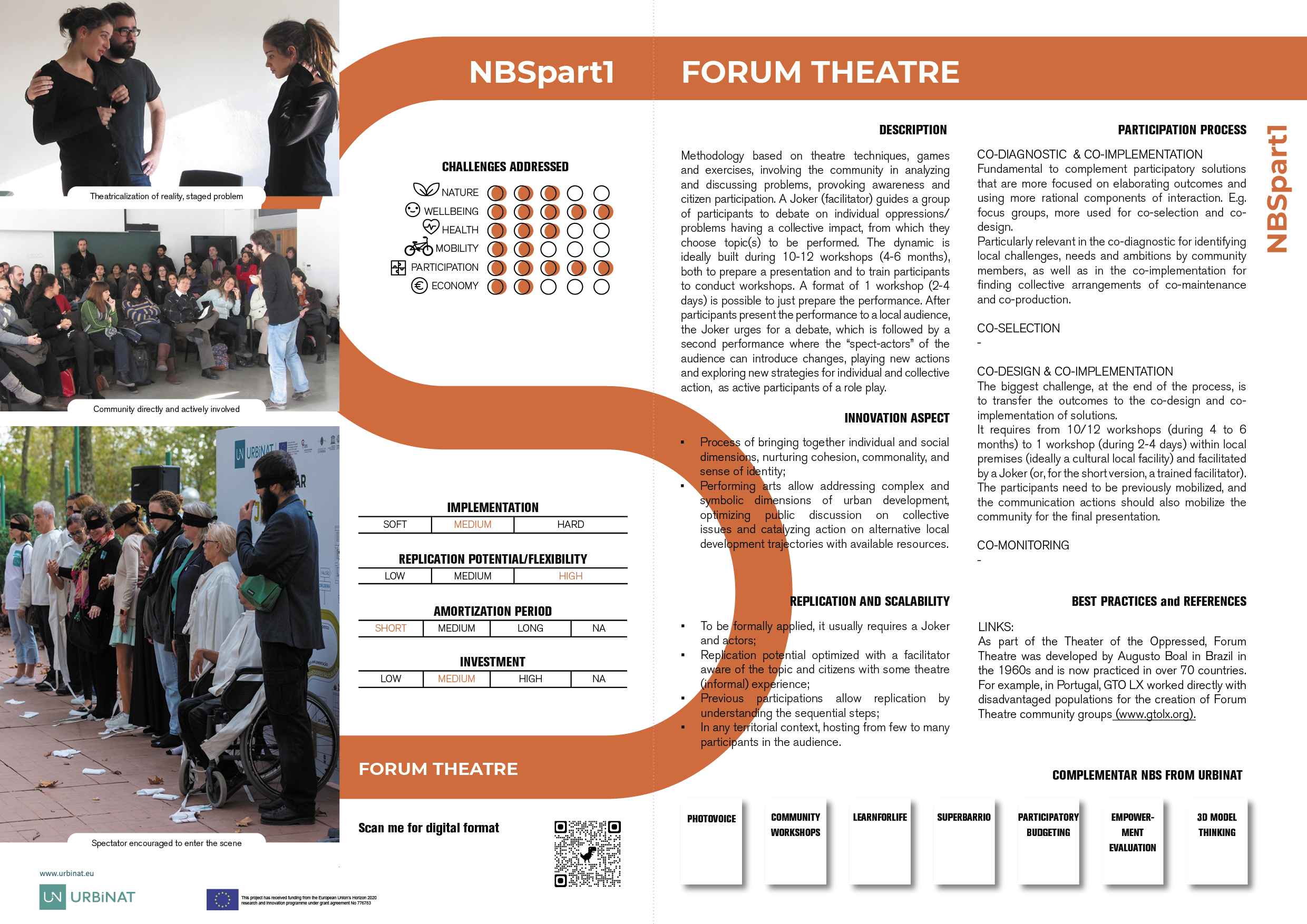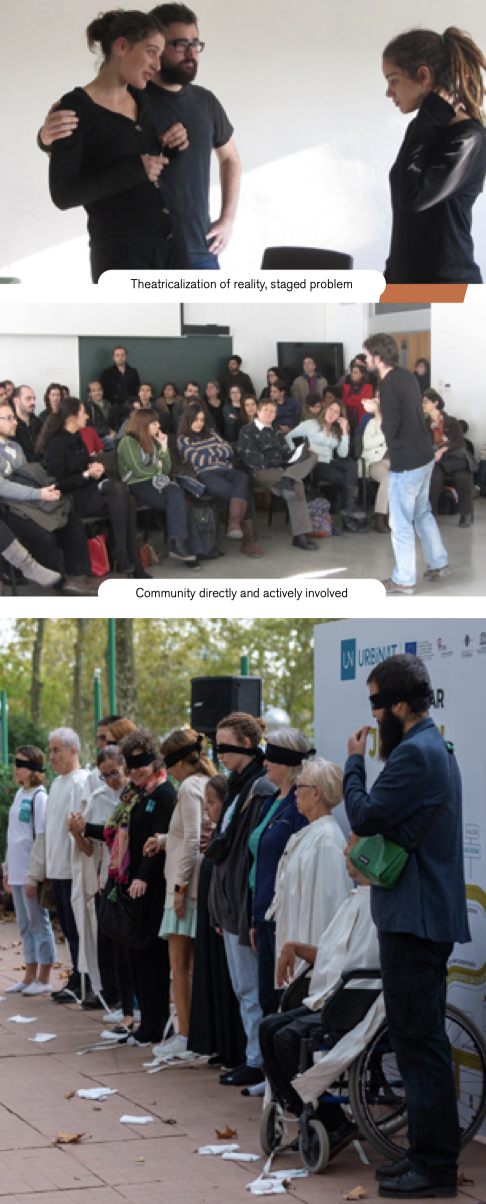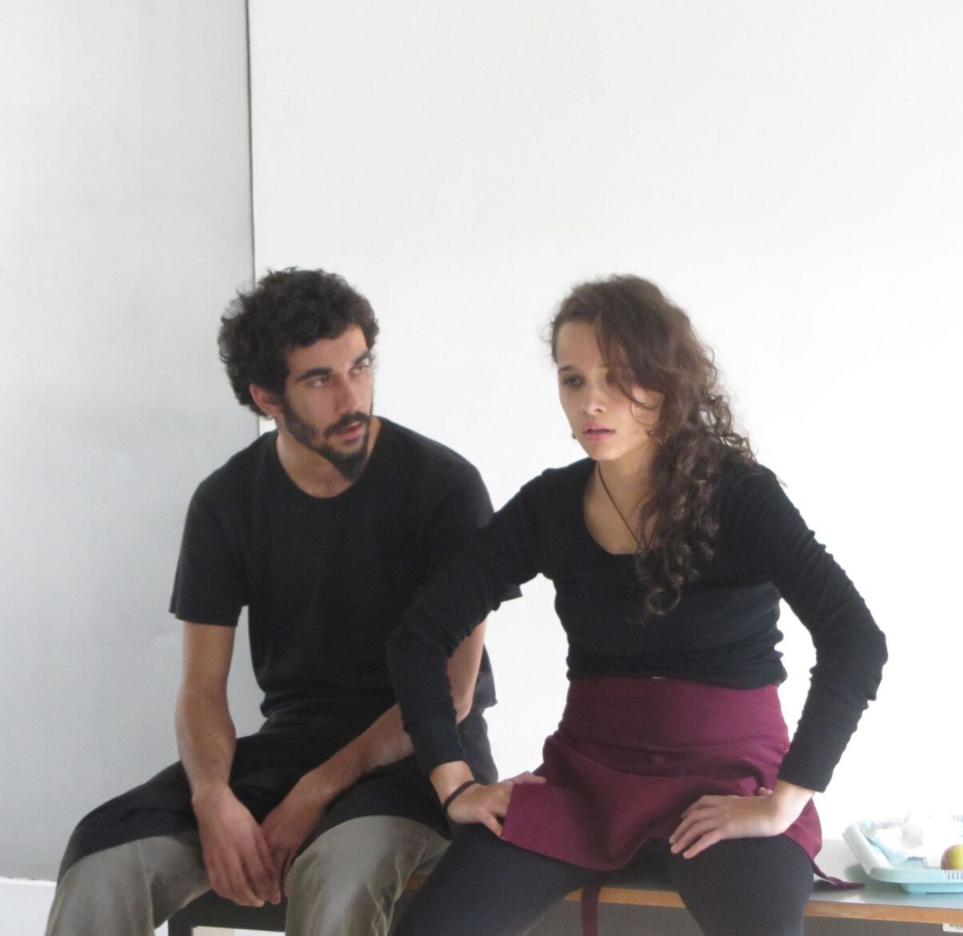Forum Theatre
CHALLENGES ADDRESSED
Score impact
Nature
Wellbeing
Health
Mobility
Participation
Economy
DESCRIPTION
Methodology based on theatre techniques, games and exercises, involving the community in analyzing and discussing problems, provoking awareness and citizen participation. A Joker (facilitator) guides a group of participants to debate on individual oppressions/ problems having a collective impact, from which they choose topic(s) to be performed. The dynamic is ideally built during 10-12 workshops (4-6 months), both to prepare a presentation and to train participants to conduct workshops. A format of 1 workshop (2-4 days) is possible to just prepare the performance. After participants present the performance to a local audience, the Joker urges for a debate, which is followed by a second performance where the “spect-actors” of the audience can introduce changes, playing new actions and exploring new strategies for individual and collective action, as active participants of a role play.

[PDF Download] Forum Theatre
Methodology based on theatre techniques, games and exercises, involving the community in analyzing and discussing problems, provoking awareness and citizen participation. A Joker (facilitator) guides a group of participants to debate on individual oppressions/ problems having a collective impact, from which they choose topic(s) to be performed. The dynamic is ideally built during 10-12 workshops (4-6 months), both to prepare a presentation and to train participants to conduct workshops. A format of 1 workshop (2-4 days) is possible to just prepare the performance. After participants present the performance to a local audience, the Joker urges for a debate, which is followed by a second performance where the “spect-actors” of the audience can introduce changes, playing new actions and exploring new strategies for individual and collective action, as active participants of a role play.
INNOVATION ASPECT
• Process of bringing together individual and social dimensions, nurturing cohesion, commonality, and sense of identity;
• Performing arts allow addressing complex and symbolic dimensions of urban development, optimizing public discussion on collective issues and catalyzing action on alternative local development trajectories with available resources.
REPLICATION AND SCALABILITY
• To be formally applied, it usually requires a Joker and actors;
• Replication potential optimized with a facilitator aware of the topic and citizens with some theatre (informal) experience;
• Previous participations allow replication by understanding the sequential steps;
• In any territorial context, hosting from few to many participants in the audience.
PARTICIPATION PROCESS

-
1
CO-DIAGNOSTIC & CO-IMPLEMENTATION
Fundamental to complement participatory solutions that are more focused on elaborating outcomes and using more rational components of interaction. E.g. focus groups, more used for co-selection and codesign.
Particularly relevant in the co-diagnostic for identifying local challenges, needs and ambitions by community members, as well as in the co-implementation for finding collective arrangements of co-maintenance and co-production.
-
2
CO-DESIGN & CO-IMPLEMENTATION
The biggest challenge, at the end of the process, is to transfer the outcomes to the co-design and coimplementation of solutions.
It requires from 10/12 workshops (during 4 to 6 months) to 1 workshop (during 2-4 days) within local premises (ideally a cultural local facility) and facilitated by a Joker (or, for the short version, a trained facilitator). The participants need to be previously mobilized, and the communication actions should also mobilize the community for the final presentation.
Best Practices and References
LINKS:
As part of the Theater of the Oppressed, Forum Theatre was developed by Augusto Boal in Brazil in the 1960s and is now practiced in over 70 countries. For example, in Portugal, GTO LX worked directly with disadvantaged populations for the creation of Forum Theatre community groups.





